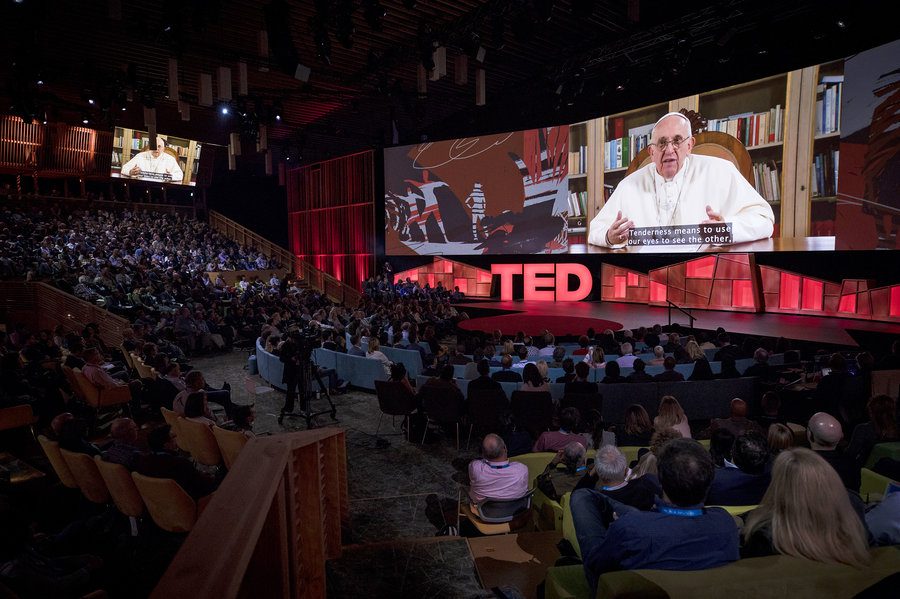MIT Students Heading to the Vatican, and More – Boston News

Let’s explore some of the most interesting stories that have emerged from Boston business schools this week.
MIT Students Heading to Rome for First Ever Vatican Hackathon – MIT Newsroom
The first of its kind VHacks will take place in Vatican City from March 8-11, bringing in 120 students from various universities around the world to the city-state of the Roman Catholic Church.
“This is not just for the church,” said Sophie Liao, MIT Sloan MBA ’18, in an interview with Meredith Somers from the MIT Newsroom. “This is more about breaking boundaries. Everyone is a migrant, everyone should be involved in this discussion no matter what country they come from.”
“While this is the first event of its kind at Vatican City, using technology to address more than just science isn’t a new thing for the sovereign state’s most famous resident. In a TED Talk last year, Pope Francis suggested how ‘wonderful it would be if the growth of scientific and technological innovation would come along with more equality and social inclusion.'”

Pope Francis made a surprise Ted Talk in 2017, discussing the importance of humility / Photo via Ryan Lash, TED
You can read more about the upcoming VHacks event in Vatican City here.
Sawyer Introduces New Master’s in Marketing – Sawyer Business School
The Sawyer Business School at Suffolk University has announced its new Master of Science in Marketing degree, which prepares students to “approach complex marketing problems, analyze information, and develop high-quality strategic and tactical solutions.”
“Most master’s-level programs in marketing give the qualitative tools pretty short shrift,” says Professor Elizabeth Wilson, chair of the Department of Marketing. “But knowing how to do that kind of research and understanding the whole spectrum of social science research methods is something every employer will value.”

Product management is one of the three concentrations offered in the new Master’s of Marketing program at Suffolk / Photo via nbbj
Three concentrations will be offered as part of the new Master’s program, including: product management, global marketing, and market research and customer insights.
“’I’m excited to see the new MS in Marketing program. The marketing landscape is constantly evolving, and the way brands need to talk to their customers is evolving as well,’ says Victor Davidson, MBA ’12, senior vice president of analytics at SavingStar. ‘The new degree program will empower students to stay on the forefront of these changes and position themselves as top marketers.’”
You can read more about the MSM here.
How News Coverage is Impacting ExxonMobil’s Social Responsibility – Simmons School of Management
Simmons School of Management professor Edward Vieira recently co-authored a study that analyzed ExxonMobil’s corporate social responsibility messages over a 12-year period, from 2002-03, to “determine if there was a relationship between news coverage and subsequent CSR efforts.”
“Corporations that don’t live up to stakeholder expectations may experience a decrease in credibility, reputation, and legitimacy. It’s beneficial for an organization to consistently communicate its CSR actions as well as address culturally relevant events. Therefore, it’s logical that as the world’s fourth largest oil producer, ExxonMobil’s CEO’s letters delivered CSR messages that focused on major external events.”
Read more about Professor Vieira’s research here.
Lehigh Explores Impacts of Paid Search Advertising on Sites Like Yelp

Yelp’s surprisingly durable platform continues to sway consumers’ decisions about who and where to patronize, with 163 million unique monthly visitors.
This is especially true with the advent of paid advertising that appears alongside search results. But what influence does it have on the production end? The Lehigh University College of Business and Economics recently discussed a new study that suggests “paid search advertising can be a profitable investment for small businesses.”
Despite the exponential growth of digital advertising in the past five years, research has uncovered that the effects are actually “limited for branded advertisers since consumers already know and intend to buy from the brand when they search.”
This fact sparked the imaginations of Lehigh economics professor Daisy Dai and Harvard Business School Administration professor Michael Luca who were both interested in understanding “the impact on small businesses whose names are less known and who may gain from an increase in visibility.”
The duo eventually found themselves at the helm of the “largest-scale search advertising experiment run on online platforms in terms of number of businesses involved.” Dai and Luca conducted an experiment in which they took a pool of 18,000 restaurants and randomly assigned free search advertising packages to 7,000 of them, most of which had “not actively advertised on Yelp prior to the experiment.”
According to the article, the researchers examined “page views of the business’ Yelp page, requests for directions, phone calls to the restaurants from Yelp’s mobile page or mobile app, and clicks on the restaurants’ URL on their Yelp page” and compared the “outcome of businesses that did or did not receive free advertising.” The experiment found that “Yelp advertising leads to a 25 percent increase in page views and a 9 to 18 percent increase in purchase intentions, such as direction requests, visits to the restaurant’s website and calls to the restaurant,” according to Dai.
Another insight was related to the number of Yelp reviews each business received, which grew by 5 percent, then “dropped to zero immediately after the advertising period, suggesting ads temporarily raised awareness of businesses that users otherwise would not discover.”
Dai concludes, “Our study finds that an average local restaurant can benefit from search advertising on Yelp. Unlike previous online advertising experiments that usually focus on a few big brands, we yield insights for small businesses.”
Startup Lessons: Impulse Analytics

The path for startups can be treacherous. In our series “Startup Lessons,” we examine new MBA startups at the ground level to understand how they succeed.
